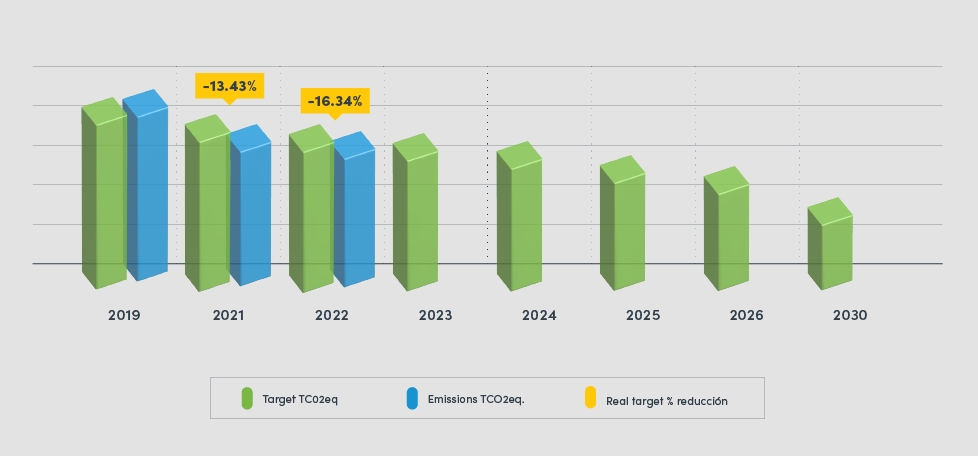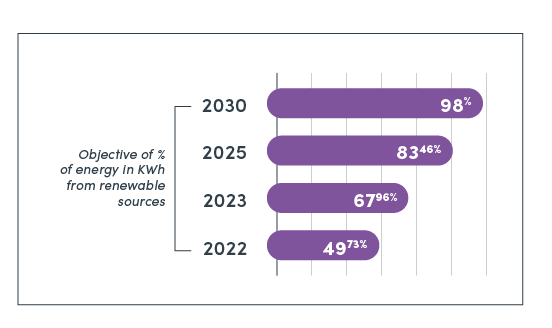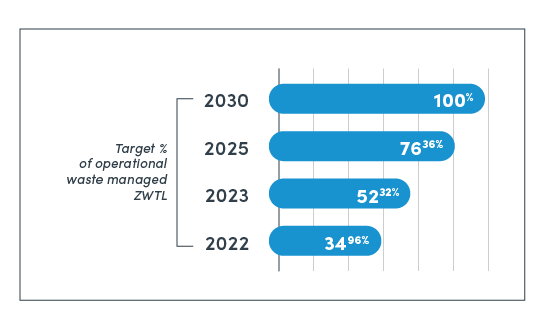
SPT1
REDUCTION OF ABSOLUTE GREENHOUSE GAS EMISSIONS By 2030, reduce absolute Greenhouse Gas (GHG) emissions (Scope 1 and 2) by 48% progressively and following the criteria of the Science Based Target Initiative -SBTi- that are aligned with the objective of the Paris Agreement that global temperatures do not exceed 1.5°C compared to pre-industrial levels.
Our Scope 1 and Scope 2 emissions in 2022 were 82,385.43 TCO2 Eq.; this represents a reduction of 16.34% compared to the 2019 baseline. These figures were verified by Ernest
and Young with limited assurance of the Carbon Footprint Inventory, in accordance with the International Standard for Assurance Engagements - ISAE 3410, for Assurance Engagements on Greenhouse Gas Statements and the Greenhouse Gas Protocol - GHG.

SBTI Reduction Objective Validation Process
It is important to mention that, in July 2023, cbc began the process of validation of reduction objectives for scope 1, 2 and 3 by the Technical Committee of the Science Based Target Initiative -SBTi-, which is a collaboration between the CDP, the United Nations Global Compact , the World Resources Institute and the World Wildlife Fund.
Renewable Energy Sources in Production Plants
One of the strategies for reducing greenhouse gases is to guarantee renewable energy sources in production plants.
In 2023, 83% of CBC´s production plants use renewable energy as a source.
Our goal for the year 2025 is to reach 83.46%.

SPT2
ZERO WASTE TO LANDFILL CERTIFICATION OF PRODUCTION PLANTS
Our goal is to ensure that by 2030 all production plants achieve and maintain the Carbon Trust standar for Zero Waste to Landfill.
The plants that have achieved certification as of December 2023 are the following: The two plants in Guatemala Mariposa and Cuyotenango in 2021 and 2022 respectively; Guayaquil Plant and Machachi Plant in Ecuador, Huachipa Plant in Peru and Livsmart in El Salvador in 2023.
In 2023, 73.25% of our operational waste is managed under Zero Waste to Landfill Standard.
It is important to mention that cbc gave priority to plants that generate the most solid waste with the aim of accelerating compliance with Carbon Trust standards.
